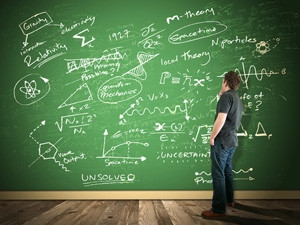
The mathematics and physical science pass rates achieved by the 2015 class of matrics won't be sufficient for varsity entry for those looking to pursue careers in ICT.
On Tuesday, Basic Education minister Angie Motshekga announced an increase in the number of learners who passed maths and physical science in the National Senior Certificate (NCS) final exams.
However, the department's National Diagnostic Report on Learner Performance reveals a steady decline in the performance of candidates in these subjects for 2014 and 2015.
Motshekga said the number of learners who passed maths increased from 120 523 in 2014 to 129 481 in 2015 (up 7.4%); while learners who passed physical science increased from 103 348 in 2014 to 113 121 in 2015 (up 9.5%).
The report analyses candidates' performance in the second NCS examinations based on the Curriculum and Assessment Policy Statement. One hundred scripts per paper per subject were randomly selected from each province across all the 121 marking centres countrywide to compile the report.
Numbers game
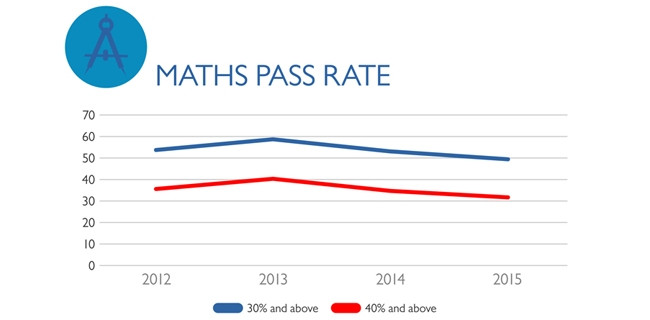
According to the report, the number of candidates who wrote the maths exam in 2015 increased by 15% compared to that of 2014; however, the general performance of candidates declined in 2015.
For 2015, 263 903 candidates wrote the maths exam. Of those, 49.1% achieved 30% and above, while 31.9% achieved 40% and above.
In 2014, 53.5% achieved the result of 30% and above, and 35.1% achieved 40% and above.
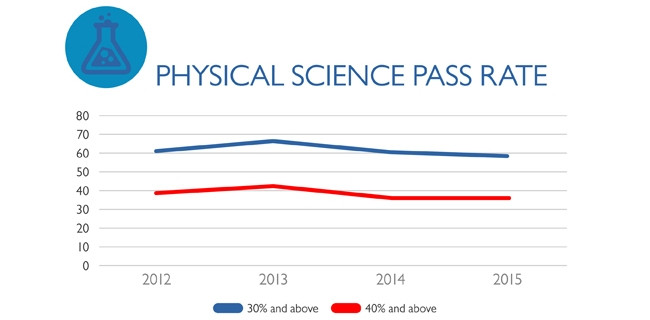
For the physical science exam, the report noted an increase of 13% in the number of candidates who wrote the 2015 exam compared to 2014, but the general performance of candidates also declined: 58.6% of candidates achieved 30% and above compared to 61.5% te year before, while 36.1% achieving 40% and above compoared to 36.9% in 2014.
Admission crisis
The Department of Basic Education (DBE) notes the matric class of 2015 struggled with mathematics in grades 11 and 12 because they could not do the basic mathematics of Grades 8, 9 and 10.
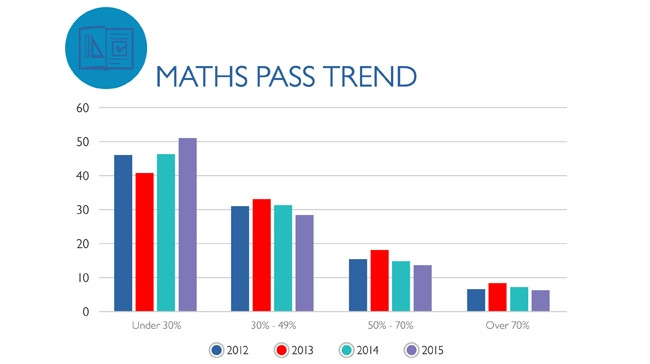
The decline in the final results obtained in maths and science means more learners will struggle to gain admission into the four-year programme for a bachelor of science in engineering (BSc Eng) at the University of the Witswatersrand, for example. The terms of NSC admission requirements for a BSc (Eng) at Wits note that "generally students who achieve 70% in maths, physical science and English stand a greater chance of being accepted."
Charis Harley, associate professor at the School of Computer Science and Applied Mathematics at Wits, says requirements of learner entry depend on the programme. "For a general programme, we require 60% in maths and English for the student to get accepted into science," says Harley.
Bruce Mellado, professor at the Wits School of Physics, says students enrolling in higher education need to be well prepared. "Higher education requires that students have a strong basis.
"... ICT does require that students have a good preparation in maths and sciences. A decline here is a red flag that needs to be addressed."
Early development
According to education activist and founder of Partners4Possibility, Louise Van Rhyn, the fact that so few of this cohort of learners pass maths and science is a challenge that needs to be addressed at the foundation level.
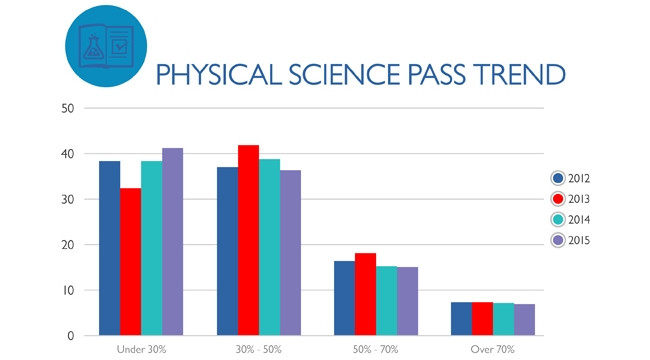
"The concern is that we are doing so much remedial work because most children did not get good foundational knowledge in the foundation phases, and will therefore always struggle with these subjects in the higher grades," she says.
"It is very difficult to encourage learners to do these subjects [maths and science] when they don't have the right foundational skills. This is where we need to invest more time and resources - in early childhood development, so all six-year-olds know their shapes, colours, sizes and numbers, and to ensure that all grade 3s have the necessary foundational skills and knowledge in order to progress to grade 4," she explains.
Education challenge
Meanwhile, during the handover of a new computer lab at the Orbit Tvet College, Mankwe Campus in Mogwase, deputy minister of Telecommunications and Postal Services, Hlengiwe Mkhize, noted the one challenge faced by government, community members and learners is maths and science education.
Mkhize notes the use of ICT in education is one of the mechanisms that can be used to improve the situation. The use of technology improves one's capacity to be innovative and able to solve problems, she says.
"A mathematical problem can be solved elsewhere in the world and be explained to a student... as if the instructor was sitting with the student right here," she says.
Share